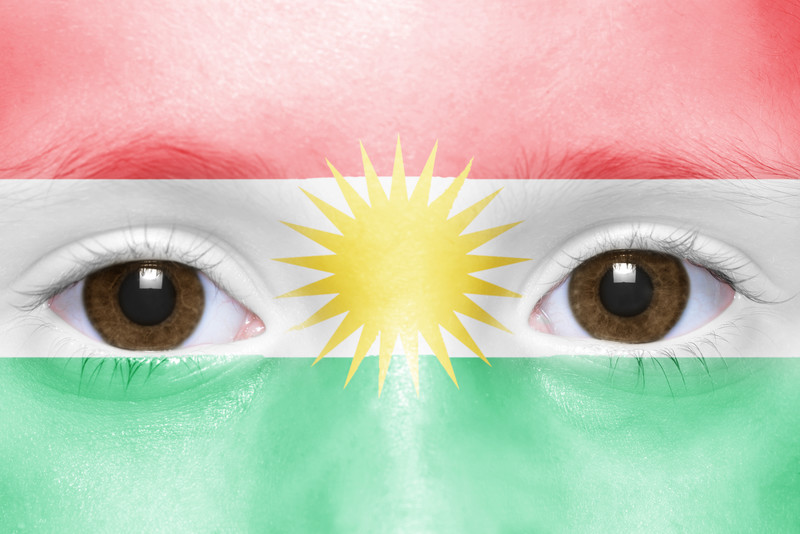Summary of the Presentation to the NSF on …
The Kurds: A Promised Land….Unpromised
A Crash Course on the history of the Middle East
and the plight of the Kurdish people
With Dr. Jill Derby
The NSF was delighted to welcome Dr. Jill Derby, the Chair of the American University of Iraq in Kurdistan, to share her vast knowledge of the Middle East and the plight of the Kurdish people. A native of Lovelock, NV, and a former Chair of the Nevada System of Higher Education Board of Regents, Dr. Derby is a noted anthropologist and has extensive experience in and ties to Kurdistan.
Dr. Derby showed the Campus of the American University of Iraq in Sulaimani, whose Board she sits on. She noted that the young people attending the University, while from various ethnic and religious backgrounds, are not burdened by their differences. They all get along regardless of religion or ethnicity.
Dr. Derby began her talk with a history of the region and numerous maps that can be found in her PowerPoint slides which are linked at the end of this document. (We strongly encourage you to review her PP closely as it contains a number of instructive slides, data and graphs)
Dr. Derby on the background of the Kurdish region:
Derby provided an illuminating “short course on Islam 101”, highlighting the Sunni/Shia divide within the Muslim religion and how it impacts this region. Among her points, Derby noted:
- There are 1.6 billion Muslims; the great majority are Sunni. Shia Muslims are concentrated only in the “Shia crescent” stretching from Iran through Iraq to Lebanon. Islam is one of the three Abrahamic faiths – Judaism, Christianity and Islam – which consider the Old Testament of the Bible as sacred scripture. Muslims consider Christians and Jews “people of the book” and have historically shown them acceptance and tolerance.
- ISIS is a violent and extremist exception. The Kurds are largely Sunni Muslims, with minorities of Assyrian Christians, Yazidis and Zoroastrians.
- The Kurds occupy land located in the contiguous parts of Syria, Turkey, Iran and Iraq! While there is no independent entity known as Kurdistan, the Kurdish region of Iraq is a semi-autonomous, self-governing region within Iraq that functions as an independent governance entity within the Iraqi federal system– much as states function in the U.S. The rest of the Kurds located in Turkey, Iran and Syria are minorities within those countries, and do not have any self-governing capacity or authority as do the Iraqi Kurds.
- There are about 20-30 million Kurdish people, who have one of the longest ethnic histories in the Middle East, dating back to 2400 BC! Historically the Kurds were pastoralists who lived primarily in the mountains. They learned to be great warriors fighting off conquering empires over many centuries. That served them well in their recent fight against ISIS.
- After World War One, the Ottoman Empire, which the Kurdish region was part of, collapsed. British and French cartographers proceeded to divide up the region without much logic or any consultation with the people and tribes living there, resulting in the creation of artificial countries such as Iraq. The Kurds took up the fight against the British, and in the end they were promised their own homeland. A promise that never materialized!
- Following the U.S. invasion of Iraq and the toppling of Saddam Hussein, who was a Sunni and secularist, the Shia came to power in Iraq with their close ties to Shia Iran. The Sunnis, dismissed from all government, military and civic positions, became a persecuted minority in Iraq, which led to the creation of Sunni radical groups, Al-Qaida and ISIS.
- In 2014, ISIS conquered large portions of Iraqi territory. The Kurdish fighting groups, the Peshmerga, although Sunni, opposed ISIS (as did the Iraqi government and military). When the Iraqi army retreated in the face of the ISIS advance, the Kurdish Peshmerga took the key oil city of Kirkuk, the control of which has been a source of dispute between the Iraqi government in Baghdad and the Kurds.
- There are historically two political parties among the Iraqi Kurds – the Barzani led Kurdish Democratic Party, KDP, and the Talabani led Patriotic Union of Kurdistan, PUK. Each of these parties has their own peshmerga (militias) and the division between them is deep and wide. They fought a civil war in the ‘90s that ended only when the U.S. intervened.
- As for the Kurds in Turkey, an independence movement developed in the 1970s by a faction of Turkish Kurds called the PKK, which adopted violence as a strategy to fight for their rights and independence. They were designated a terrorist group by the U.S., Europe and Turkey in the 80s.
- The Syrian Kurds fighting in that country’s civil war, opposing both Syrian President Assad and ISIS, have close ties with the PKK of the Turkish Kurds. Turkey’s President Erdogan is therefore hostile to the Syrian Kurds for this alliance. Both are allies of the U.S. Complicated.
- In July 2017 Mosul was retaken from ISIS, by the coalition forces of the Iraqi army, the U.S. and the Kurds. The Kurds played an important role in defeating ISIS in both Iraq and Syria.
The U.S. has been supportive of the Kurds, at least until the Referendum. Since 1992, when the U.S. established a no-fly zone to protect the Kurds against the aggression of Saddam Hussein, the U.S. has considered them a close ally. This protection allowed the Kurds to form their own government and function independently from the Iraqi central government in Baghdad and from the international sanctions the rest of Iraq endured after Saddam Hussein invaded Kuwait.
In July 2017, Masoud Barzani president of the Kurdish Regional Government called for a referendum on Iraqi Kurd independence. The Iraqi central government, along with the U.S., Europe and all the countries in the region, adamantly opposed this referendum and warned Barzani not to proceed. Since the U.S. has a “one Iraq” policy and is committed to Iraqi unity, it could not support the Kurds breaking away. The Iraqi government in Baghdad declared the referendum illegal and in violation of the constitution. Barzani persisted in the face of all opposition; the vote was held on September 25th, and the referendum passed by 90%. The Iraqi Supreme Court declared it null and void, and the Iraqi military marched north and essentially took control over the Kurdish territory by force.
That referendum by the Kurds cost them dearly. It was an enormous setback to their aspirations. The Kurdish government overplayed its hand and international support was not there to support them. The Iraqi government and military have taken control of the semi-autonomous region where the Kurds have enjoyed a prosperous, independent existence since 1992. Their airspace has been closed and their borders were taken from their control. There are major international efforts underway to pressure Baghdad to negotiate a settlement with the Kurds to avoid a military confrontation between two allies.
What should the U.S./European nations do to assist the Kurds? Dr. Derby recommended that the U.S. continue its policy of NOT supporting Kurdish independence. In fact, it must work closely with the government in Iraq, considering the larger geopolitical challenges in the region, principally that represented by Iran and its growing strength in the region. A stable Iraq is critical to an effective opposition to Tehran’s ambitions. And, finally, the U.S. must lean on Turkey as well as Iraq to take steps to give the Kurds some autonomy within the areas where they are the dominant ethnic group. A difficult task given the volatile history of the region and the various forces in strong opposition to one another!
The NSF is deeply grateful for Dr. Derby’s commitment to resolving the ethnic conflicts in the region and providing the Kurds with hope for some autonomy and security in their homeland. Her comprehensive PowerPoint can be found at the link below.
The Kurds: A Promised Land Unpromised


